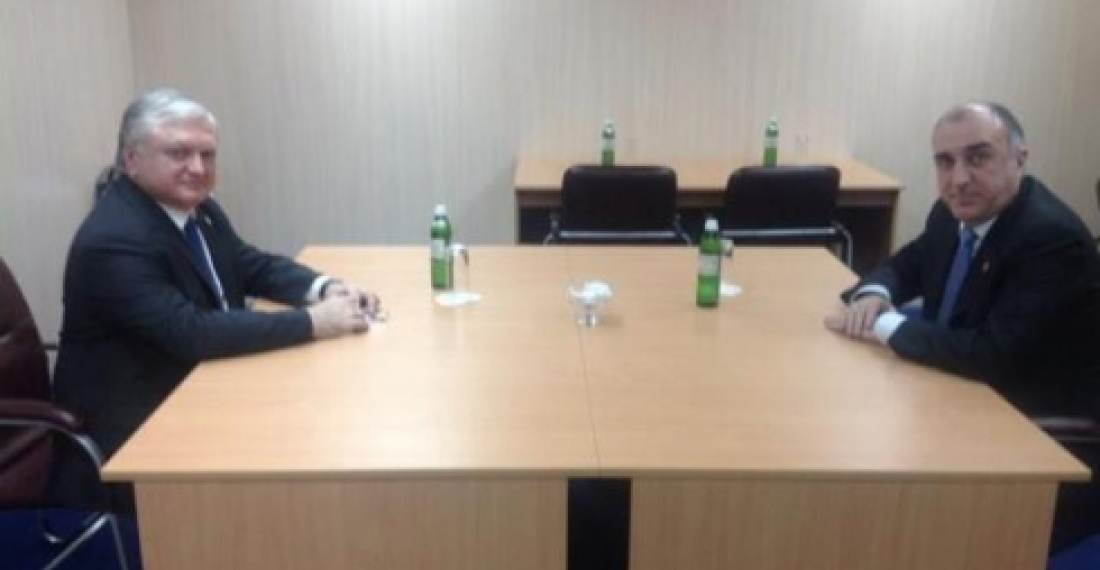Updated at 10.00 GMT to include statement by OSCE Minsk Group co-Chair countries.
The Foreign Minister of Armenia, Edward Nalbandian, and the Foreign Minister of Azerbaijan Elmar Mammadyarov, this morning met in Kiev to continue discussions on the settlement of the Nagorno-Karabakh conflict. The meeting had been agreed at a summit between the Presidents of the two countries that took place in Vienna last month.
The one-to-one meeting took place on the margins of the OSCE Ministerial Council Meeting which opened this morning in the Ukrainian Capital.
A statement issued by the OSCE Minsk Group co-Chair countries stated,
"On the occasion of the OSCE Ministerial Council Meeting in Kyiv, the Heads of Delegation of the OSCE Minsk Group Co-Chair countries (Foreign Minister of the Russian Federation Sergei Lavrov, Minister for European Affairs of France Thierry Repentin, Assistant Secretary of State for European and Eurasian Affairs Victoria Nuland) and the Foreign Minister of Azerbaijan Elmar Mammadyarov and Foreign Minister of Armenia Edward Nalbandian agreed to continue working together on a just and peaceful resolution of the Nagorno-Karabakh conflict on the basis what has been already achieved.
The Co-Chair Heads of Delegation welcomed the recent resumption of high-level dialogue between the Presidents of Azerbaijan and Armenia, and expressed their hope that upcoming meetings will advance the peace process. They encouraged the sides to consider measures that would reduce tensions in the region.
The Foreign Ministers of Azerbaijan and Armenia agreed to meet again in early 2014 under the auspices of the Minsk Group Co-Chairs, in order to facilitate further talks at the highest level. The Ministers noted that the people of the region expect and deserve progress in settlement of the conflict that has endured far too long, and expressed their appreciation for the mediation role of the Co-Chair countries."
The US co-Chair of the Minsk Process, Ambassador Warlick tweeted this picture and news of the meeting earlier this morning.
source: commonspace.eu
photo: Foreign Ministers Nalbandian (Armenia) and Mammadyarov (Azerbaijan) meeting in Kiev on 5 June 2013 (Picture from a tweet of Ambassador James Warlick)







